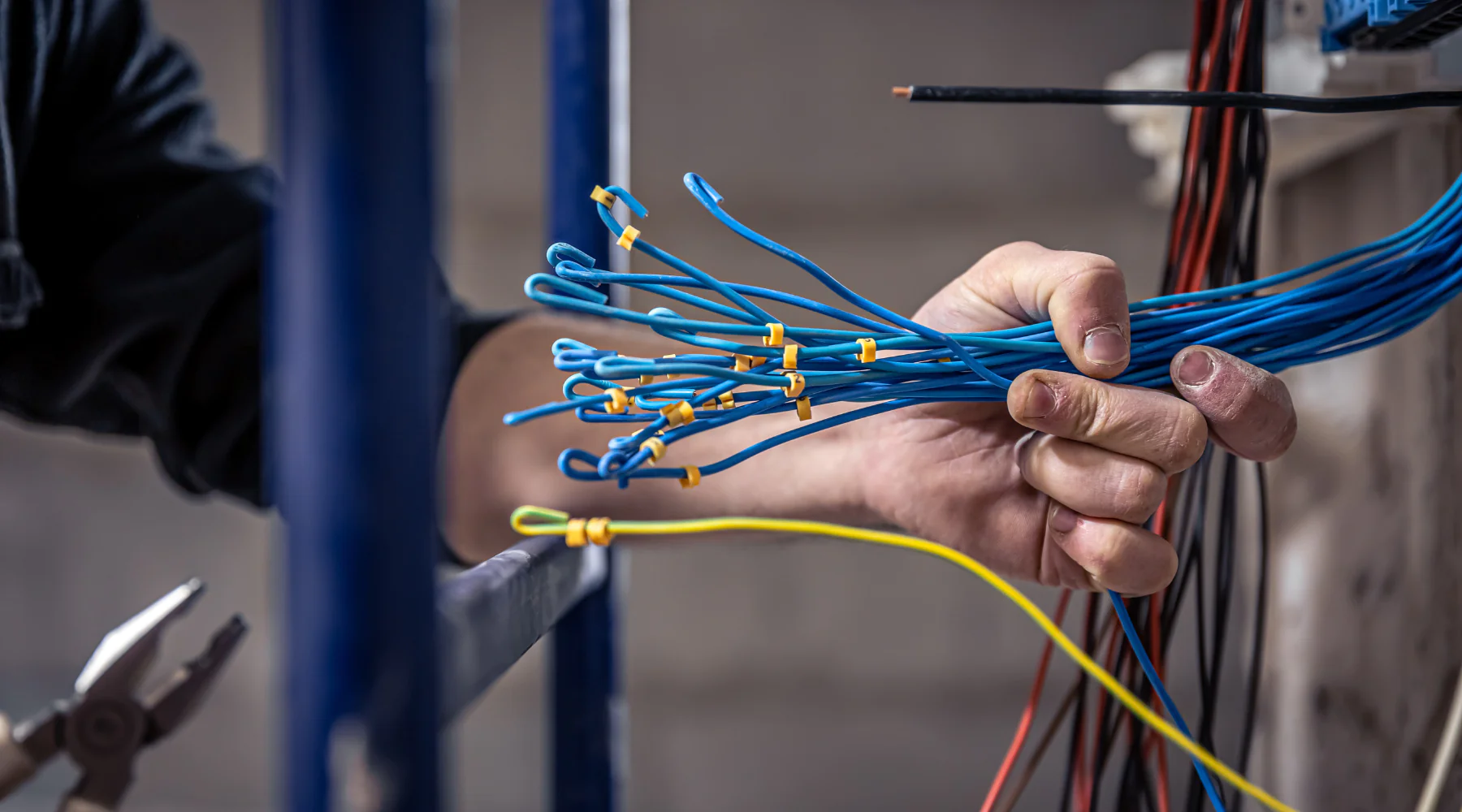NEWS
What is the importance of safety in connecting electrical wiring and circuits?

Electrical wiring and circuit connections are fundamental to modern infrastructure, powering homes, businesses, and industries. While the benefits of electricity are undeniable, the risks linked with improper wiring and circuitry can be severe, ranging from electrical shocks to fires and even fatalities. Therefore, prioritizing safety in connecting electrical wiring and circuits is paramount. We will explore the critical importance of safety in electrical work and the measures that must be taken to ensure safe electrical connections.
Importance of safety in electrical work
- Prevention of Electrical Shocks
Safety in connecting electrical wiring and circuits begins with stemming electrical shocks, one of the most common and dangerous electrical hazards. Electrical shocks occur when a person comes into direct contact with live electrical components. Even low-voltage shocks can be life-threatening. Proper insulation, grounding, and electrical circuit design are essential safety measures. Wiring must be adequately insulated to prevent accidental contact with conductors, and ground-fault circuit interrupters (GFCIs) should be installed to disconnect power when a fault is detected rapidly. Electrical workers must adhere to these safety practices to protect themselves and others from electrical shocks.
- Fire Prevention
Improperly connected electrical circuits are a leading cause of electrical fires. Overloaded circuits, loose connections, or damaged wiring can generate excessive heat and sparks, igniting nearby combustible materials. Electrical fires pose a significant risk to life and property. Electrical professionals must use proper wiring techniques and load calculations to prevent electrical fires. Circuit breakers and fuses must be appropriately sized to protect against overloads and short circuits. Routine inspections and maintenance are crucial to identify and rectify issues before they lead to fires.
- Protection of Electrical Equipment
Electrical equipment is a significant investment, and its proper functioning is essential for residential and commercial applications. Incorrect wiring connections can damage equipment, leading to costly repairs or replacements. Overloading circuits or using improper voltage can also stress electrical appliances and devices, reducing their lifespan. Safety measures such as voltage regulation, surge protection, and proper grounding safeguard electrical equipment. Professionals in electrical work must ensure that equipment is correctly connected to the electrical supply, with the right voltage and current rating, to prevent damage and ensure longevity.
- Compliance with Electrical Codes and Standards
National and local electrical codes and standards exist to ensure the safe installation and operation of electrical systems. Compliance with these codes is mandatory and legally required in most jurisdictions. Electrical professionals must be well-versed in the applicable codes and standards to ensure that wiring and circuit connections meet safety requirements. Non-compliance with electrical codes can result in serious consequences, including fines, legal liabilities, and project delays. Additionally, adherence to codes and standards is paramount for obtaining electrical permits and approvals for construction or renovation projects.
- Occupational Safety
The safety of electrical professionals themselves is a top priority. Electricians and electrical workers face various hazards, including electrical shocks, arc flashes, and exposure to hazardous materials. Adhering to safety practices, wearing personal protective equipment (PPE), and following proper procedures are paramount for protecting the well-being of electrical professionals. Safe work practices, such as lockout/tagout procedures, ensure electrical circuits are de-energized before maintenance or repairs. Arc flash protection and appropriate PPE, including arc-rated clothing and face shields, are essential for mitigating the risks associated with electrical work.
- Minimizing Downtime
In commercial and industrial settings, electrical failures can result in costly downtime. Preventive measures and safe electrical connections help minimize the risk of unplanned outages and disruptions to operations. Properly installed and maintained electrical systems are more reliable and less likely to fail. Scheduled maintenance and routine inspections are essential for identifying potential issues before they cause downtime. Electrical professionals play a critical role in ensuring that electrical systems remain operational and reliable, contributing to the continuity of businesses and industries.
- Avoiding Property Damage
Electrical faults and failures can usher in significant property damage. Electrical fires, short circuits, and equipment malfunctions can cause extensive damage to buildings, machinery, and valuable assets. Proper wiring and circuit connections are crucial in preventing such incidents. Safety measures, including regular inspections and maintenance, help detect and address potential issues early, preventing property damage. Additionally, safety devices such as surge protectors and ground fault circuit interrupters (GFCIs) offer additional protection against electrical faults that can lead to property damage.
Safety is paramount in connecting electrical wiring and circuits. Electrical hazards, including electrical shocks, fires, and equipment damage, can have severe consequences. Electrical professionals ensure that electrical systems are installed and maintained, with safety as a top priority. Electrical professionals can protect lives, property, and the environment by adhering to safety practices, complying with electrical codes and standards, and prioritizing preventive measures. Safety in electrical work is a legal requirement and a moral obligation to prevent accidents and uphold the highest standards of professionalism in the field. For more information on electrical safety and best practices, visit website on electrical safety guidelines and resources.
Harper Harrison is a reporter for The Hear UP. Harper got an internship at the NPR and worked as a reporter and producer. harper has also worked as a reporter for the Medium. Harper covers health and science for The Hear UP.










